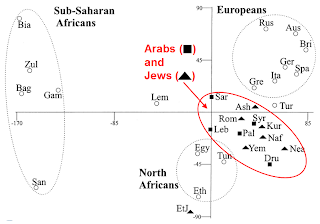chesswarsnow
"SASQUATCH IS WATCHING"
Sorry bout that,
1. Now look we all know where the arabs in Israel came from, lets be men.
2. They came from Syria, Lebanon, Egypt, and surrounding *hell holes*.
3. We know this, lets stop *all* the bullshit.
4. There was never a *home land* for arabs in Israel.
5. Never a working government, never a form of currency, never a heritage.
6. Just a bunch of arabs showed up to stake claims on Israel, when the Jews came back home in 1948.
7. This too shall pass, not to worry people of Israel.
8. Link:Hamas: 'Resistance' against Israel is only option left for Palestinians - Haaretz Daily Newspaper | Israel News
""The Palestinian people do not beg the world for a state, and the state can't be created through decisions and initiatives," Haniyeh said. "States liberate their land first and then the political body can be established."
9. And why don't they, because they know Israel will end up running them into the seas.
10. Some stupid cleric in Iran thinks he has something to do with Israel, bring it Iran, and watch your whole country go up in fucking smoke you stupid bastards!
Regards,
SirJamesofTexas
1. Now look we all know where the arabs in Israel came from, lets be men.
2. They came from Syria, Lebanon, Egypt, and surrounding *hell holes*.
3. We know this, lets stop *all* the bullshit.
4. There was never a *home land* for arabs in Israel.
5. Never a working government, never a form of currency, never a heritage.
6. Just a bunch of arabs showed up to stake claims on Israel, when the Jews came back home in 1948.
7. This too shall pass, not to worry people of Israel.
8. Link:Hamas: 'Resistance' against Israel is only option left for Palestinians - Haaretz Daily Newspaper | Israel News
""The Palestinian people do not beg the world for a state, and the state can't be created through decisions and initiatives," Haniyeh said. "States liberate their land first and then the political body can be established."
9. And why don't they, because they know Israel will end up running them into the seas.
10. Some stupid cleric in Iran thinks he has something to do with Israel, bring it Iran, and watch your whole country go up in fucking smoke you stupid bastards!

Regards,
SirJamesofTexas


